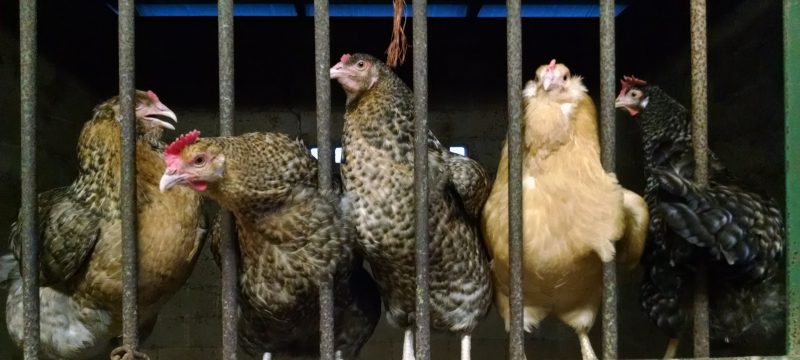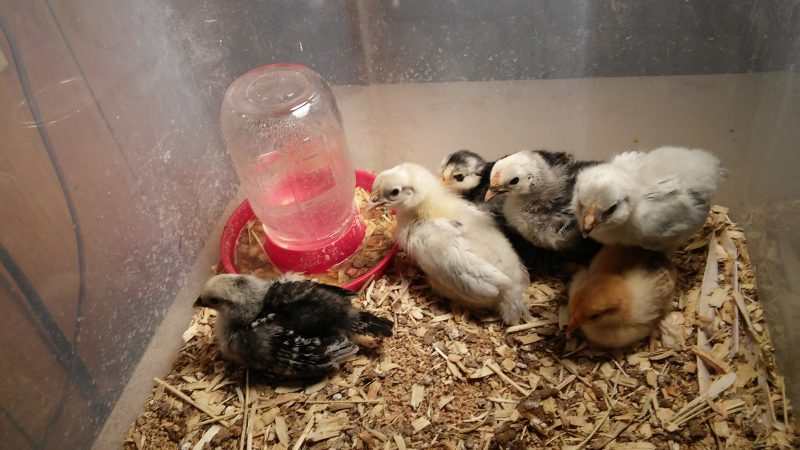Raising chickens in your backyard is becoming more popular once again. There has been a push to change land use codes to allow for small scale poultry production in large cities and towns as more people want to raise their own chickens for eggs and meat. Under the Limited Poultry and Egg Farm Operation Program (regulated by FDACS), small scale producers can also sell meat and eggs direct to consumers. Many small vegetable farmers have started selling eggs under this program to diversify and earn extra income. However, raising poultry is not for everyone.
Before purchasing poultry, you need to determine what county and city codes affect your property. Then you need to consider limiting the impact of poultry on your neighborhood. Roosters add considerable unwanted noise early in the morning and are not needed for unfertilized egg production. Poultry can bring unwanted smells and insects if not managed properly. You need to have a dry area in your yard to house the poultry.
Next, you should consider chick care. Baby chicks need to be kept at around 95°F for the first week and then decrease 5° each week until they are over 5 weeks old. These young birds also need special chick starter feed until they are 8 weeks old when you can switch them to a chick grower feed. Chicks need to be 20 weeks old before giving them adult feeds. If your backyard flock is for laying eggs, you will want to separate the roosters and hens at 20 weeks. Roosters are really of no use if you just want laying hens. The hens will need to be fed a layer ration.
There are some parasites and diseases to control in chickens. Internal parasites are worms. External parasites include mites and lice. Chickens needs to a clean, dry area to live in. This will help cut down on internal and external parasites and reduce the need to use pesticides to control them. Chickens can be vaccinated for diseases. Check with a local vet to see what diseases are prevalent in your area. In our area, we have recently had an outbreak of fowl pox so I would recommend vaccinating against this disease.
Housing needs of chickens also should be addressed. Chickens need a minimum of 3 square foot of floor space per bird. They should also have a structure with at least 2 solid sides and a roof to protect them from the wind and rain. The structure can be fixed or mobile. There are some benefits to having a mobile chicken coop. It makes sanitation easier by spreading the manure around the yard so that it does not just accumulate in one location. One thing you will need to consider is that chicken manure is high in Nitrogen. So you will need to fertilize less if using this method. Whether fixed or mobile, these coops need to be sturdy enough to keep out predators.
For more information, use the following link to view the publications available from UF/IFAS Extension on this topic:
- Farm Well Summit – Growing a Healthy Agriculture Community – February 4 - January 17, 2025
- Spray Drone Regulations - July 16, 2024
- 2023 WFREC Crop Variety Trial Results - February 2, 2024


